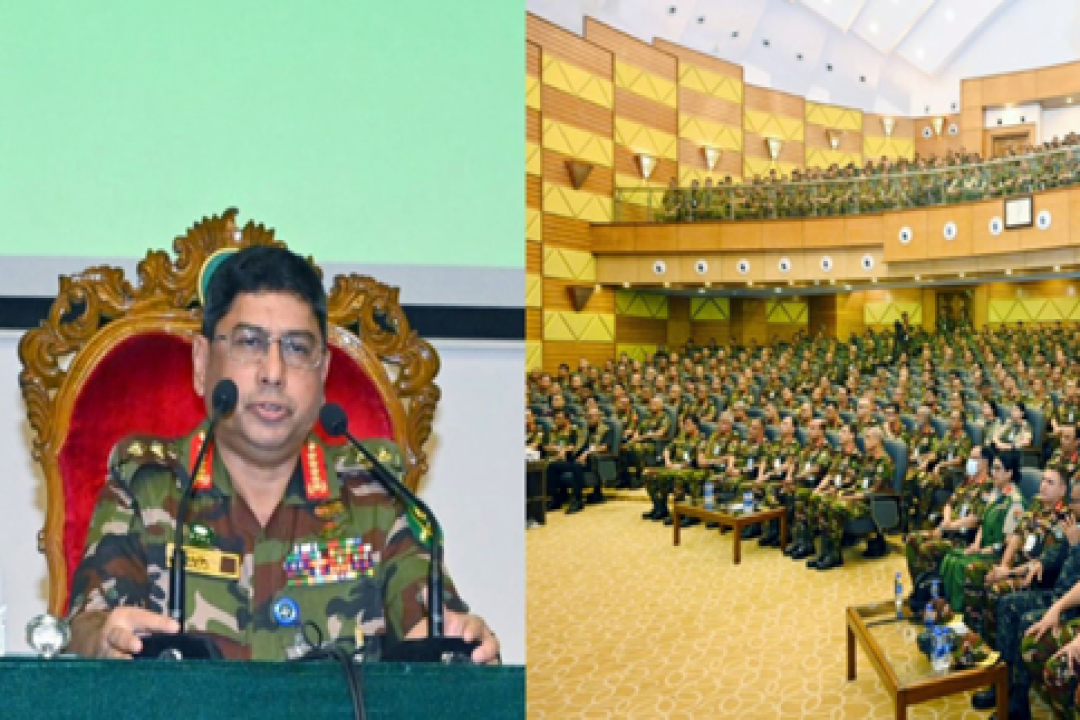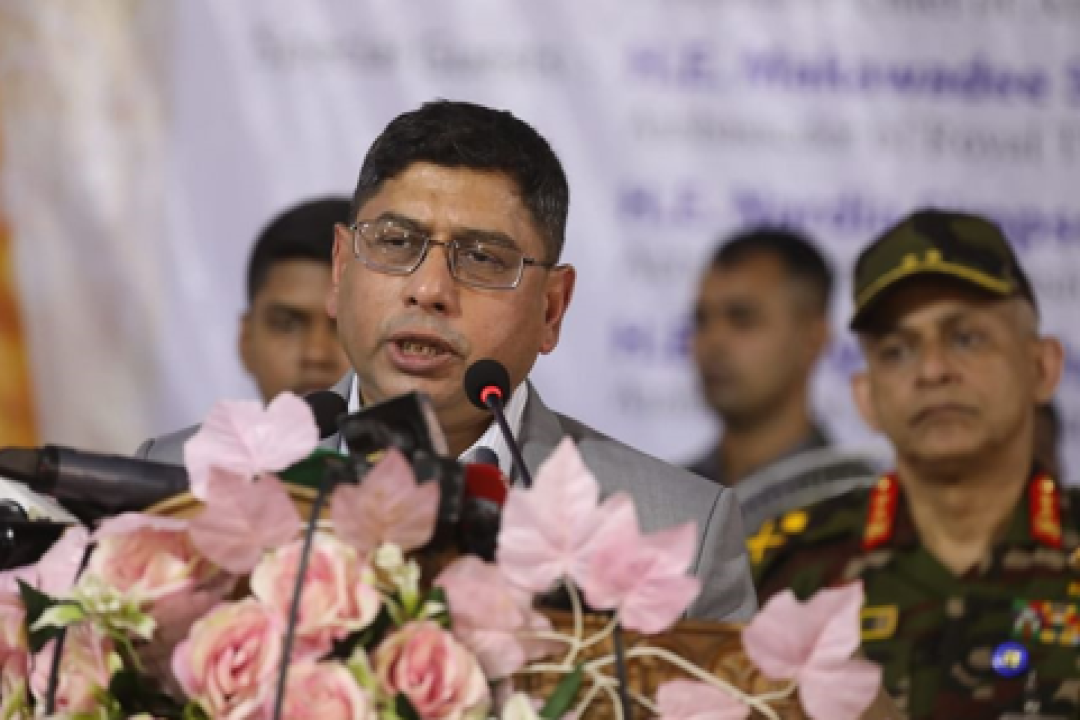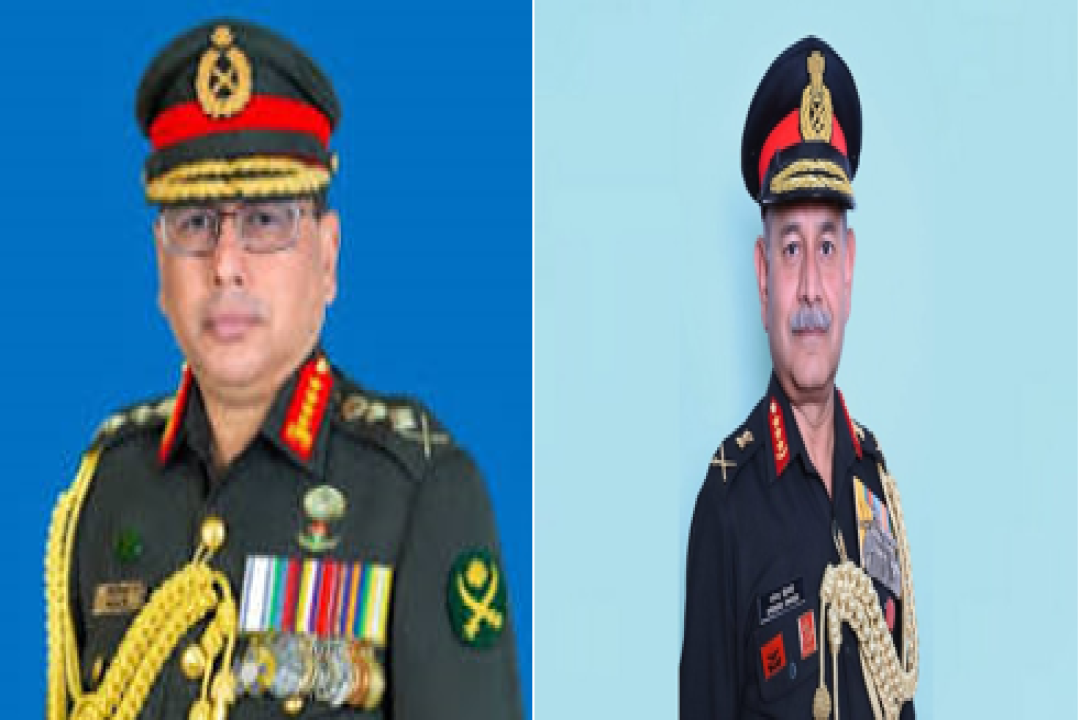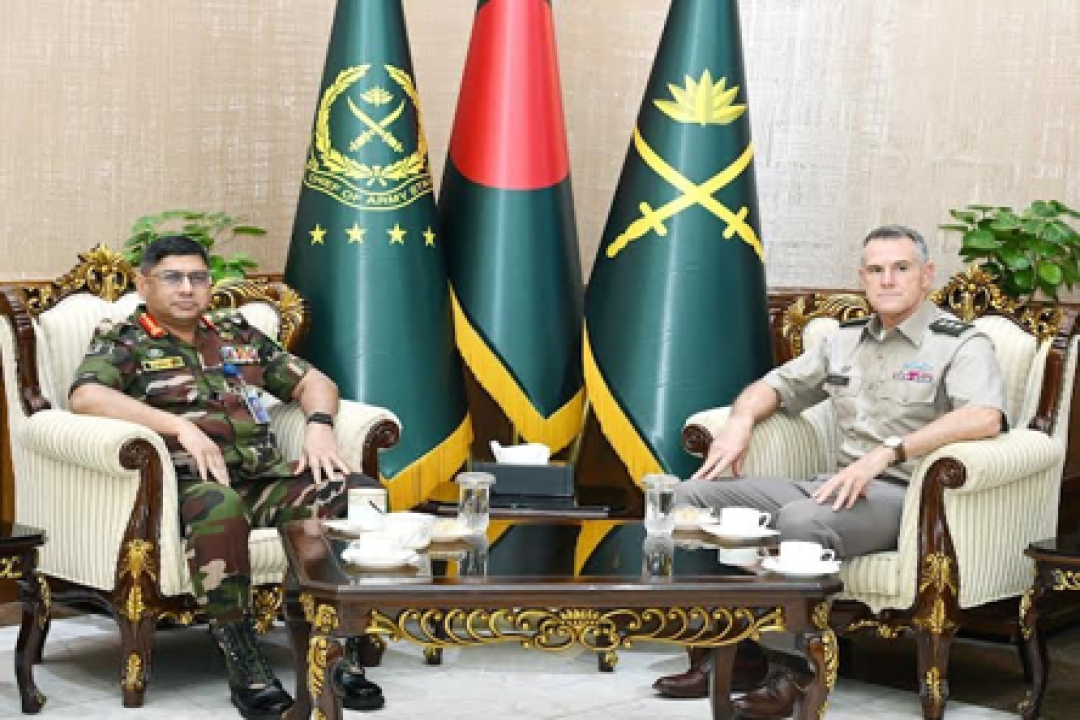The end of the era of Sheikh Hasina’s autocracy was abrupt and unforgiving. The so-called Bangladesh’s iron lady of 15 years bowed out to a student-led uprising on August 5, 2024. Serving as an autocratic leader since 2009, Hasina was forced to resign and flee the country to India while hundreds of thousands marched towards Dhaka defying the curfew called by the ousted regime.
Advising restrain, the Army chief said, “Our country had never experienced such mass protests since 1970. So, it’s a unique case. We all need to have patience”. “Bangladesh Army is the symbol of trust for the people. Bangladesh Army has always stood by the people and will continue to do so for the interest of people and in any need of the state,” the Army Chief added. He also made it clear that army would not open fire on the civilians. It was the indication that Bangladesh army would not forcefully suppress the violent demonstrations, leaving Hasina vulnerable.
It is, indeed, a great moment that Bangladesh is now free from Hasina’s 15 years autocratic rule. The nation is celebrating its’ ‘second independence’ called by Professor Dr. Muhammad Younus, Head of the interim government. The people of Bangladesh awaited for this well-deserved freedom without knowing when or how it could achieve.
Finally, it has been earned by an unpredicted group of student without any particular leadership in a way that was also unanticipated. Freedom has, of course, come at the cost of hundreds of lives. How the students got the courage and determination to sacrifice their blood for this freedom will remain a mystery. The students gave their lives without second thought. They came out on streets with full knowledge of Hasina’s thirst for blood. At the end, the so-called iron lady was forced to flee to where she came from over four decades ago.
Notably, the last 48 hours before the downfall of Sheikh Hasina’s dictatorship was full of unprecedented dramatic events. At the last phase, Bangladesh Army played a courageous role by standing with people and saved the nation from further blood-shed.
The evolving situation was very difficult for the army leadership to determine the course of actions to control the escalating situation sparked by the month-long student-led protest. On August 3, an emergency meeting was called by the Chief of Army Staff General Waker-Uz-Zaman to address his officers regarding the ongoing situation in Bangladesh.
But a lot was already brewing inside the Bangladesh Army. In the meeting, young officers questioned the legitimacy of the army’s action during the deployment. They voiced concern about the growing resentment of the public towards the army, underlining “the pain of losing children and the need for justice” to which the Chief readily agreed. They also suggested the army should work to regain its image by supporting the injured students.
When sheikh Hasina called crisis security talks to put down spiraling unrest in on August 4, she appears to have been in denial that her time was up as the ruler. Within hours, she would be swept away by people power-indeed, few could have predicted the speed of her exit.
In the end, it was the advice of close family rather than top security officials that persuaded her to flee. Hasina made her mind up just in time-crowds entered her residence within a couple of hours of her escaping.
The National Security Committee meeting – called for on August 4, in the late morning- brought Hasina together with the country’s top three military chiefs, senior security officials and police.
Pressure on Hasina had been mounting for weeks as anti-government protests raged around the country. Hundreds have been killed in the worst violence Bangladesh has seen since its war of independence in 1971. On August 4, alone, at least 90 people lost their lives, mostly demonstrators shot by the security forces – but also a growing number of police killed by the crowds.
Sheikh Hasina wanted to stay in power until the last moment- by force. But the military leadership did not agree with her. On August 4, ordinary people and protesters mingled with field-level soldiers and army officers in various parts of the country. After reviewing the situation, senior military officers realized things were out of control.
Individually, the military top brass at the meeting told the Hasina that the soldiers could not shoot at civilians – but they could provide security back-up to the police. Senior police officials also complained they were running out of ammunition, it later emerged.
Sheikh Hasina, however, would not listen – and no-one was willing to disagree with her at her face. After the nation security committee meeting, she delivered her defiant message. She called the protesters ‘terrorists’ and urged the people to resist those she described as ‘arsonists’. The security forces feared they could soon have a situation approaching civil war on their hands.
Pictures of August 4, violence were going viral on the social media as the death toll steadily rose. Images of young people with bullet wounds , shot by the police and members of the ruling AL party’s youth wing SL and JL, were triggering more anger. As the ferocity of the clashes became clear, student leaders brought forward
their call for a mass march on Dhaka by a day, taking the authorities by the surprise.
Intelligence inputs suggested the students’ demands were gaining traction and thousands of people were planning to descend on the capital the following day. If the security forces tried to stop the protesters, there would be another bloodbath. So, the army chief decided to speak to Hasina again.
The three service chiefs met her again on the August 4, in the evening and politely explained that the situation on the ground was getting more and more volatile, and that crowd of thousands were expected in Dhaka on August 5, in the morning. They could not guarantee the safety of her residence.
Hasina did not take their advice, but everyone could sense power was already shifting. By Sunday (August 4) night, police were absent in many place across the country and numerous security barricades were unmanned.
She was adamant, neither would she resign nor was she willing to leave. The three chiefs came, and tried to make her understand about what is happening on the ground.
They said it would be difficult for the troops to fire on the crowd. They said our troops are also part of the country. They come from the villages, they would not open fire on their own people.
On August 5, in the morning, large crowds had started moving towards Dhaka. Army chief was at Hasina’s residence once again explaining to her the gravity of the situation. People were breaking the curfew and violence had already started. Army chief told her they could not prevent the crowds from reaching the Gono Bhaban, the official residence, for much longer. An hour or so at best.
At this point, army chief decided to talk to the family members to intercede. The military chiefs then held talks with Sheikh Rehana, Hasina’s sister, to see if she could persuade her elder sibling to leave.
The officials held discussion with Rehana in another room. They asked her to explain the situation to Hasina. Rehana then talked to Hasina, but Hasina was determined to hold on to power.
Then, Hasina’s son Sajeeb Wazed Joy and daughter Saima Wazed, who both live abroad, spoke her on the phone and insisted she should go. During this family negotiations, army chief was present reportedly throughout.
“My mum did not wish to leave the country at all. We had to persuade her,” Joy said BBC adding his mother began thinking of resigning on August 4, in the evening.
“We in the family begged her, we urged her, this is the mob, they are out for violence and they will kill you and we need to get you to safety. Only however long it took the mob to get there, that was how much time she had. They just left without any preparation,” added Joy.
According to BBC, on August 4, in the morning, Hasina got in touch with the government officials in Delhi to request sanctuary. The advice from India, a staunch ally throughout her long career, was for her to leave. Washington, in the meantime, had reportedly been telling Indian foreign ministry officials that time was up for Hasina. She had run out of options.
Finally, Hasina resigned and fled to India at the lunch time when she realized that Army was no longer with her. The army chief did not publicly explain his decision to withdraw support from Hasina. But the scale of the protests and a death toll made supporting Hasina at all costs untenable. There was also a lot of uneasiness within the troops that is what definitely put pressure on the army chief, because the troops were out and they were seeing what was happening.
In the late afternoon, the Army Chief General Waker-Uz-Zaman came up with the historic declaration for the nation – “the Prime Minister of Bangladesh, Sheikh Hasina, has resigned and left the country. I am taking responsibility now and we will go to the president and ask to form an interim government to lead the country in the meantime.”
Given all the facts and developments suggest that the Bangladesh Army, at the end, sealed the fate of Sheikh Hasina, the brutal autocrat, by refusing to open fire for suppressing the people of Bangladesh. Bangladesh Army, however, made all necessary arrangement for her safe exit. Though many believe Hasina should not have been given the safe passage.
November 24, 2024
Dhaka set to sign defense deal with TokyoNovember 24, 2024
Magistracy power for officers of Armed Forces for another 60 daysNovember 24, 2024
Government to decide how long army will remain deployed in the fieldNovember 24, 2024
Army recovers huge cache of arms, ammunition from KNF denNovember 24, 2024
Army cautions against misuse of its name in jhut business: ISPRNovember 24, 2024
Singapore’s high commissioner meets Army ChiefNovember 24, 2024
Army chief visits Cox’s BazarNovember 24, 2024
65 citizens from Myanmar's tribal communities enter Bangladesh illegallyNovember 24, 2024
Who is Trump intelligence pick Tulsi Gabbard?November 24, 2024
Pentagon stunned after Trump picks Pete Hegseth for Defense SecretaryNovember 24, 2024
Ukraine marks 1,000 days of war with pledge to ‘never submit’ to RussiaNovember 24, 2024
Arrest warrants issued for Netanyahu, Gallant over war crimesNovember 11, 2024
Deputy Commander of US Indo-Pacific Command calls on Army ChiefNovember 11, 2024
Air chief off to China on nine-day visitNovember 11, 2024
Recruit batch parade of EME and ACC Corps heldFollow Us

50,000
Fans

50,000
Fans

50,000
Fans

50,000
Fans

50,000
Fans

50,000
Fans







